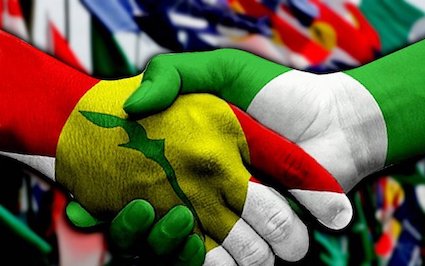
The PAS-Umno alliance and the DAP-PPBM alliance shows what Malaysian politics has been reduced to: unholy alliances
Wan Haron Wan Hassan , Free Malaysia Today
Umno and PAS have formalised their marriage, strengthening their strategic alliance in time for the next general election.
Last month, the PAS muktamar passed a motion for both parties to work together.
As said by then-Umno acting president Mohamad Hasan, the parties “dated” in the Sungai Kandis by-election, got “engaged” in Seri Setia, and were ready to “tie the knot” after Semenyih.
Umno and PAS plan to celebrate their political cooperation with a mega rally themed “Unity of the Ummah” to strengthen the agenda of “Malays, Islam and national unity”, where a charter on their cooperation will also be launched.
Politics makes strange bedfellows. Shared interests can bring together people with little in common.
“Misery acquaints a man with strange bedfellows,” wrote Shakespeare about a man who is shipwrecked and finds himself seeking shelter beside a sleeping monster.
We are not quite sure which party is shipwrecked and which is the monster. Both parties are desperate: to survive and move forward they have to enter into a marriage of convenience. Never mind the fact that the marriage is not borne out of genuine love, but out of harsh necessity and the reality of the situation.
In the last election, both parties learnt a bitter lesson when they chose to contest under different platforms.
Now they are wiser and can see that history will most likely repeat itself if they do not change their strategies.
Admittedly, this marriage is the best thing that could have happened to both parties. But what does it mean to political Malaysia?
Pakatan Harapan (PH) should not take things too lightly. These two parties command almost two-thirds of the Malay electorate and are still very influential in the Malay community.
Remember, of the 222 parliamentary seats, 119 are Malay-majority.
The cooperation between Umno and PAS will cause Malay politics to tilt to the right and become more conservative.
Leaders from both parties have played up racial and religious issues. This is the new narrative as they try to mobilise support.
Although these political developments could pose a threat to PH, its leaders appear to be shrugging them off.
Having said that, the cooperation is still a work in progress, with many issues to be addressed before it can be a credible alternative to PH.
The real challenge for both parties will be how to reconcile their ideological differences. It will not be easy to harmonise the pursuits of Umno’s worldly objectives and the spiritual pursuits claimed by PAS.
Since the death of Nik Abdul Aziz Nik Mat, PAS has lost the soul of its struggle. Leaders have become more worldly in their approach, ready to trade principles with political exigencies. Many things that were once considered sacred to PAS are now negotiable. Religious edicts, too, keep changing.
Umno and PAS still have to agree on seat distribution. Eventually they have to find a way to work out a political equation as they tussle for control of the federal government.
But many PAS members, especially in the rural areas, still find it hard to accept Umno after years of being told to see the Malay party as infidels. Likewise for Umno members who have been taught for years that PAS is their public enemy number one.
Even then, members may be persuaded by their leaders to see the larger picture: winning the general election.
Umno has a wide network all over the country; PAS may want to tap into it. Umno may be looking at PAS’ history as a spiritual party to whitewash its battered image.
PH leaders said they would not pursue narrow race and religious politics. They said they want to build a new Malaysia to fulfil the legitimate expectations and aspirations of the majority of the people. They recognise that Malaysia is a multiracial country comprising different races, creeds and religious faiths.
PH leaders do not think the people of Sabah and Sarawak can accept Umno and PAS. To them, the right way forward is by way of inclusive politics.
These PH leaders believe that Malays, even those in rural areas, will come around and see PH’s good governance and inclusivity as the way of the future.
They hope to convince the Malays that PAS-Umno politics belongs to the past.
The government is expected to table a bill in Parliament which would allow an additional 3.8 million people to vote in the next election.
These new voters will play a significant role. Ultimately, the people must decide what kind of Malaysia they would like to live in.
We know the track records of Umno and PAS. We know what we got under Umno. The question is, do we still want more of the same in the future?
Or are we to believe now that Umno and PAS have changed for the better?
While we rejoice at the existence of a vibrant democracy brought about by at least two viable coalitions competing for the people’s votes at the ballot box, the people have to make a wise choice by giving the mandate to the right party to rule the nation.



The Malay voters are going to be cheated big time come GE15. PIS umno will be very happy they are able to do so. Malays are vey vulnerable lot. Look at how they are being cheated for the last 30 years in Kelantan.
ReplyDelete